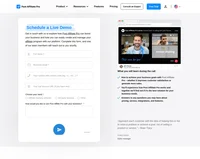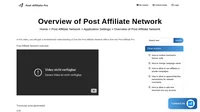What are authority sites?
The very high-quality website, which is accepted by people in its business is also called an authority site. These sites have a high rank, a great look, many incoming quality links and more.
Authority sites are dynamic, original and really useful for people. People can find there trustworthy information, very specific topics and they actually find what they are searching for. These are main targets of authority sites.
An authority site is a website recognized in its industry or niche as a reliable and trusted source of information. It earns this status through high-quality content, strong editorial standards, and often, a significant number of high-quality backlinks from other reputable sites. Authority sites are influential and respected by both their audience and search engines like Google, which tend to rank them higher in search results due to their perceived expertise, authoritativeness, and trustworthiness (E-A-T).

Key Characteristics of Authority Sites:
- High-Quality Content: Authority sites produce content that is not only informative but also comprehensive and well-researched. This content is often detailed, answering user questions thoroughly and providing valuable insights. According to Authority Hacker, authority sites are content-driven, delivering real value through excellent editorial standards that build trust and credibility among users and industry experts alike.
- Trust and Credibility: These sites build trust through consistent, reliable information and often have content created or reviewed by experts in the field. As noted by FATJOE, authoritative websites are seen as trusted and credible sources, often dominating search results and being recognized as go-to resources for users seeking reliable answers.
- Strong Backlink Profile: Authority sites have numerous backlinks from other trusted websites, serving as votes of confidence in their content. Backlinks are one of the most influential ranking factors in Google’s algorithm, significantly impacting a website’s authority, as described by multiple sources including CopyPress.
- User Engagement: They maintain high user engagement with low bounce rates and high time-on-page metrics, indicating that users find their content valuable. Authority Hacker highlights the importance of delivering real value through engaging content that users trust, thereby enhancing user retention and engagement.
- Diverse Traffic Sources: Authority sites often gain visitors from various channels, including organic search, social media, and direct visits. This diversification protects against potential penalties from search engines or social media platforms, ensuring longevity and stability, as emphasized by Authority Hacker.
- Monetization Versatility: They can monetize through multiple streams such as affiliate marketing, ads, sponsored content, and selling products or services. Authority sites, as described by Authority Hacker, have inherent diversification in both traffic and revenue streams, making them attractive business models for sustained income.

Building digital influence
Authority sites, often regarded as industry powerhouses, hold a dominant position in the digital landscape. These websites have earned recognition for their expertise, credibility, and influence, making them go-to sources for users seeking reliable information. Understanding authority metrics and harnessing their power to improve website ranking are vital steps for affiliates to achieve online success and establish a strong reputation within their niches.
Authority metrics
Common authority metrics include domain authority, page authority, and backlink profile. Domain authority, calculated on a scale from 1 to 100, assesses a site’s overall strength, while page authority focuses on individual page influence. Backlink profile, the quality and quantity of incoming links, also significantly impact a site’s authority.
Search engines use these metrics to determine a site’s reputation and rank it accordingly. Search algorithms recognize their expertise and prioritize their content in search results. Ranking higher translates to increased organic traffic, better visibility, and enhanced credibility among users.
Building Authority for Your Website
Building an authority site requires a strategic approach that involves content creation, SEO, link building, and user engagement. Here’s how you can establish and grow the authority of your website:
Choosing the Right Niche
- Niche Selection: Choose a niche that balances your expertise and interest with market demand and competition. A niche should have growth potential and be broad enough to allow for content expansion without being too general. CopyPress emphasizes the significance of becoming the go-to resource in your chosen niche to establish authority.
- Evergreen Topics: Focus on topics that remain relevant over time (evergreen content) to ensure sustained traffic and engagement. Evergreen content solidifies a site’s authority by consistently attracting and engaging audiences over time.
Creating High-Quality Content
- Comprehensive Content: Develop content that covers topics in-depth, using a mix of articles, guides, infographics, and videos. This not only meets user needs but also signals to search engines that your site is a thorough resource. FATJOE highlights the importance of comprehensive, well-researched content that meets the audience’s expectations and search engine criteria.
- Expert Contributors: Engage subject matter experts to contribute or review content, adding credibility and authority to your site. Involving experts ensures the accuracy and trustworthiness of the information provided, enhancing the site’s reputation.
- Content Clusters: Organize content into clusters around central topics (pillar pages) with interlinking articles, creating a robust internal linking structure that enhances SEO and user navigation. This strategy improves the site’s authority and makes it easier for search engines to understand the site’s structure and content relevance.
SEO and Keyword Research
- Keyword Strategy: Focus on long-tail, low-competition keywords initially to rank more easily and build momentum. Use tools like Ahrefs or SEMrush for keyword discovery. Starting with less competitive keywords helps in gradually building the site’s authority and visibility.
- On-Page SEO: Optimize content with relevant keywords, meta tags, headings, and alt texts. Ensure fast loading times and mobile-friendly design to enhance user experience and search rankings. On-page SEO is crucial for authority sites to meet search engine requirements and user expectations.
Building Backlinks and Online Reputation
- Link Building: Acquire backlinks from reputable sites through guest blogging, partnerships, and content sharing. Quality over quantity is key here. Backlinks from authoritative sites serve as endorsements, boosting the site’s credibility and authority.
- Social Proof and Engagement: Encourage social shares and user engagement on platforms like LinkedIn, Twitter, and industry forums to build a community around your brand. Social proof enhances a site’s authority by showcasing its influence and reach.
- Monitor and Disavow Toxic Links: Regularly check your backlink profile for spammy links and use tools like Google’s Disavow Tool to maintain a clean link profile. This practice protects the site’s authority by ensuring only high-quality links contribute to its reputation.
Monetization Strategies
- Affiliate Marketing: Review products and include affiliate links to earn commissions. Choose products that align with your site’s niche and audience interests. Authority sites can effectively integrate affiliate marketing due to their trusted status and high traffic volumes.
- Ad Revenue: Use platforms like Google AdSense for display advertising revenue. Ensure ads are not intrusive to maintain user experience. Balanced ad placement contributes to monetization without compromising user engagement.
- Premium Content and Memberships: Offer exclusive content or community access for a subscription fee to diversify income streams. This strategy leverages the site’s authority to generate additional revenue through exclusive offerings.
Monitoring and Improving Authority
- Domain Authority Metrics: Use tools like Moz’s Domain Authority or SEMrush’s Authority Score to track your site’s authority over time. Compare with competitors to gauge progress. Regular monitoring helps in understanding the site’s performance and identifying areas for improvement.
- Content Audits: Regularly audit your content for quality and relevance, updating or removing outdated information to maintain authority. Content audits ensure the site remains a reliable and authoritative resource for users.
- User Feedback: Encourage and analyze user feedback to continuously improve content and user experience, fostering a loyal audience base. User feedback provides insights into audience preferences and areas needing enhancement, contributing to sustained authority.
Authority Sites and Affiliate Marketing
Authority sites are particularly effective for affiliate marketing. Their trusted status and high traffic volumes make them ideal platforms for promoting affiliate products. By integrating affiliate links naturally within high-value content, authority sites can generate significant revenue while maintaining user trust and engagement.
Building Authority with Affiliate Marketing
- Product Reviews and Comparisons: Create detailed reviews and comparisons within your niche, using affiliate links to products you endorse. This strategy adds value by providing informed recommendations based on the site’s authority.
- Value-Added Content: Offer unique insights, tips, or tutorials related to affiliate products, enhancing the content’s value and encouraging conversions. This approach leverages the site’s expertise to boost affiliate marketing success.
- Transparent Disclosures: Be transparent about affiliate relationships to maintain trust and comply with legal requirements. Transparency reinforces trust and aligns with ethical standards, crucial for maintaining authority.
Frequently Asked Questions
How can I get backlinks from high authority sites?
The best way to get backlinks from high authority sites is to create high-quality content that is relevant to their audience and then promote it through social media and other channels.
How can I find authority sites for SEO?
One method is to use a search engine such as Google and type in keywords related to your niche or topic. Then, look at the websites that appear in the top results. These are generally considered to be authority sites.
What are authority sites used for?
Authority sites are used to provide information that is considered reliable and accurate.
Explore Post Affiliate Pro's comprehensive Affiliate Program Directory, featuring diverse opportunities with competitive commissions and flexible payout options. Discover programs across various industries, accept worldwide traffic, and elevate your affiliate marketing game. Join today and maximize your earnings!
The leader in Affiliate software
Post Affiliate Pro offers a comprehensive affiliate software platform to manage multiple affiliate programs with ease. Enjoy no setup fees, 24/7 customer support, and a free 1-month trial. Ideal for small and large businesses, it features precise tracking, automated workflows, and customizable tools to boost your affiliate marketing success. Try it now and streamline your affiliate operations effortlessly!
Discover Post Affiliate Pro's flexible pricing plans tailored to fit your business needs, with options for Pro, Ultimate, and Network packages. Enjoy a free trial with no credit card required, no setup fees, and the freedom to cancel anytime. Benefit from features like unlimited affiliates, advanced reporting, customizable interfaces, and lifetime support. Save up to 20% with annual billing and take advantage of more than 220 integrations. Perfect for businesses seeking to enhance their affiliate marketing efforts. Visit now to find the ideal plan for you!
Overview of Post Affiliate Network
Discover the power of Post Affiliate Network for managing affiliate programs across multiple brands from a single account.
Join the SafetyWing Affiliate Program to earn commissions by promoting innovative insurance and financial products for remote workers and nomads worldwide. Benefit from a 10% commission rate, no minimum payout, and a global reach. Discover diverse promotional materials and flexible payout options. Explore the full potential of this Cost Per Sale (CPS) program with detailed campaign rules and supportive affiliate management. Visit now to start maximizing your earnings!










